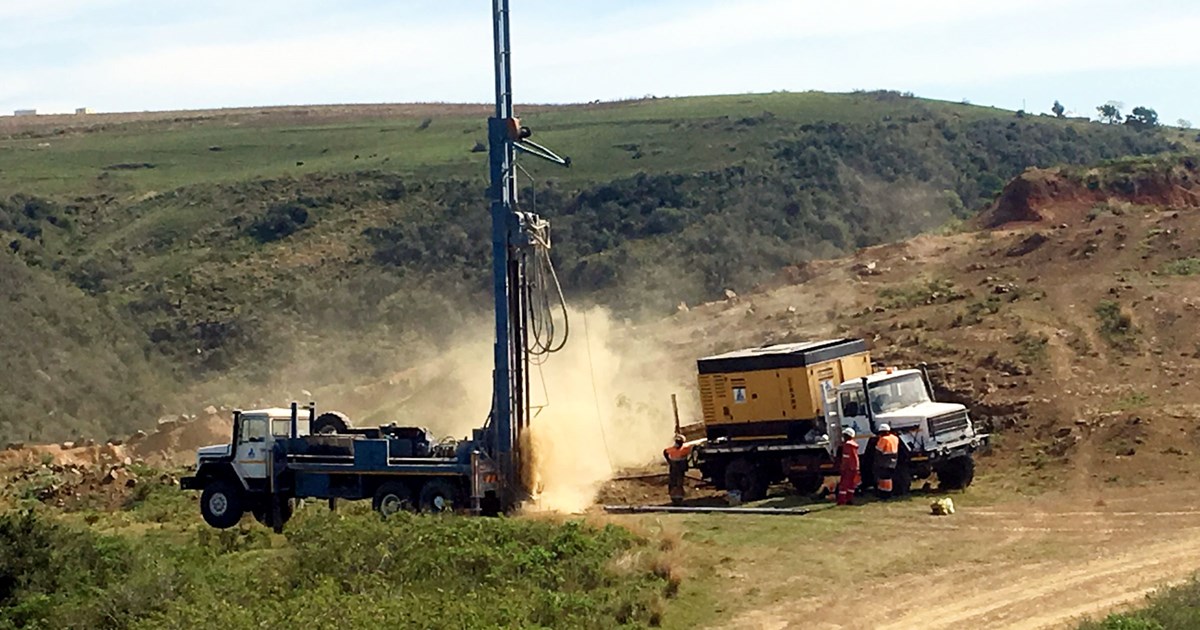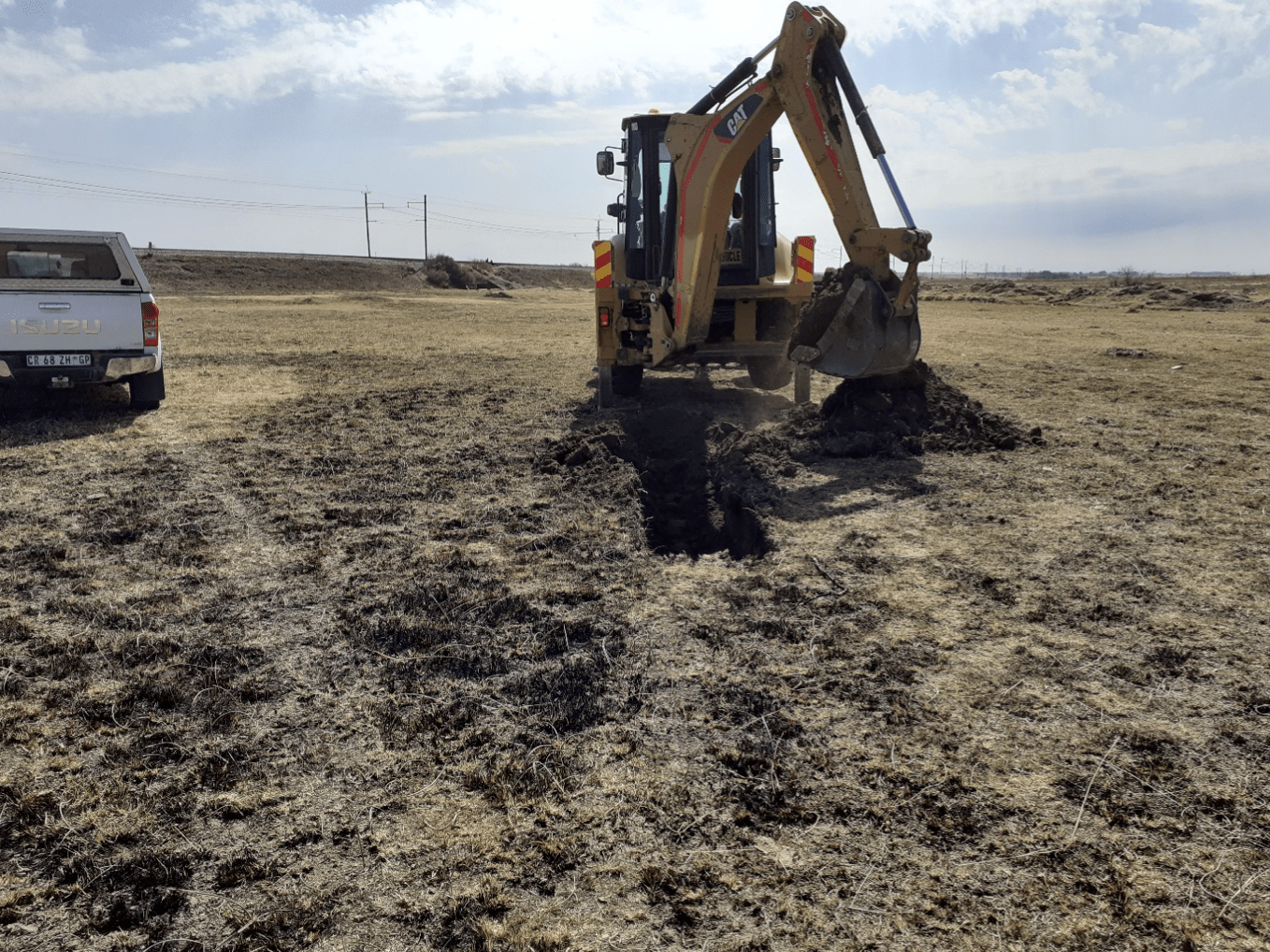How a Geotechnical Specialist Can Ensure the Success of Your Structure Structures
How a Geotechnical Specialist Can Ensure the Success of Your Structure Structures
Blog Article
The Significance of Geotechnical Design in Attending To Ecological Difficulties and Enhancing Building And Construction Safety And Security
Geotechnical engineering offers as a cornerstone in the intersection of environmental stewardship and construction safety and security, supplying crucial insights right into the actions of soil and rock under numerous conditions. By carrying out strategic site investigations and customized mitigation actions, geotechnical engineers play a vital function in safeguarding both human lives and environmental integrity.

Duty of Geotechnical Engineering
Geotechnical design plays an important function in the design and building and construction of infrastructure by attending to the habits of soil and rock materials under numerous conditions. This field of design is crucial for recognizing the interaction between structures and the ground, which consists of identifying the load-bearing capability of soil, examining stability, and predicting potential settlement or failing.
Geotechnical designers are accountable for performing website examinations, which entail tasting and testing dirt and rock to gather data on their physical and chemical buildings. This details is vital for creating structures, keeping walls, and other earth-retaining frameworks that make certain safety and security and long life. Geotechnical design notifies the choice of appropriate building methods and materials, consequently reducing threats associated with soil behavior.
In addition, the combination of geotechnical design principles right into city preparation and environmental monitoring is important for dealing with difficulties such as ground contamination and groundwater administration. By recognizing geotechnical elements, engineers can create lasting remedies that enhance the resilience of framework against natural risks, while additionally promoting ecological stewardship. Eventually, the duty of geotechnical engineering is important for attaining safe, sturdy, and ecologically conscious building and construction practices.
Soil Disintegration Reduction
Dirt disintegration poses a substantial hazard to both environmental security and framework stability, impacting approximately 24 billion lots of abundant dirt lost each year worldwide. This phenomenon is exacerbated by factors such as deforestation, urbanization, and poor farming methods. Geotechnical design plays an essential duty in developing effective dirt disintegration mitigation techniques that protect both the environment and construction jobs.
One strategy requires the implementation of disintegration control methods such as plants growing, which maintains soil with root systems. Additionally, the building and construction of maintaining wall surfaces and terraces can effectively decrease surface area overflow and shield susceptible locations from disintegration. Proper drain style is also crucial; it lessens water build-up and routes excess overflow far from crucial frameworks.
In addition, geotechnical designers use dirt stablizing methods, such as the application of geotextiles and eco-friendly floor coverings, to enhance soil cohesion and stop deterioration - geotechnical specialist. Regular monitoring and analysis of erosion-prone sites allow timely interventions, ensuring lasting sustainability. By incorporating these approaches, geotechnical design not only minimizes the effects of soil erosion however additionally contributes to the resilience of infrastructure versus ecological obstacles, eventually fostering a safer and much more lasting constructed environment
Groundwater Defense Methods
Groundwater functions as an essential source for alcohol consumption water, agriculture, and commercial processes, making its protection important for ecological sustainability and public health and wellness. Efficient groundwater defense approaches are critical in alleviating contamination threats and making certain the longevity of this source.

Routine tracking of groundwater top quality is additionally vital, making it possible for very early detection of that site contamination resources and promoting prompt remediation initiatives. Utilizing innovative modern technologies, such as geophysical surveys and remote picking up, help in determining prospective risks to groundwater books.
Additionally, public education and learning and stakeholder engagement are crucial, fostering area assistance for groundwater defense efforts. about geotechnical engineering. By incorporating regulatory steps, technological developments, and area participation, we can develop a comprehensive structure that safeguards groundwater sources while advertising lasting growth and building techniques
Landslide Risk Management
Landslides pose considerable risks to both human security and framework, making reliable danger management approaches crucial. Geotechnical design plays an essential duty in determining, assessing, and mitigating landslide threats. An extensive understanding of incline stability, soil mechanics, and hydrology is important for developing reliable danger management strategies.
The initial action in landslide risk management involves thorough site investigations, which include geological mapping and soil testing. These examinations assist designers review the possibility for landslides by recognizing crucial variables such as slope angles, dirt composition, and water content. Making use of innovative innovations such as remote noticing and geophysical surveys can boost the precision of these assessments.
Once risks are recognized, suitable reduction actions can be carried out. These might include design services such as maintaining walls, water drainage systems, and slope stablizing methods. Checking systems need to be established to detect indications of ground movement and adjustments in water levels, permitting for proactive interventions.

Enhancing Building And Construction Safety And Security
Building websites often present a myriad of dangers that can threaten worker safety and security and job integrity. Geotechnical design plays a critical duty in improving building and construction security by giving essential insights right into subsurface problems. Through thorough soil and rock analysis, geotechnical engineers can recognize potential dangers, such as soil instability, groundwater problems, and seismic susceptabilities, which may jeopardize the safety of building and construction tasks.
Applying geotechnical remedies, such as appropriate foundation layout and the usage of preserving structures, mitigates these dangers dramatically. These solutions not just make sure the security of the frameworks being developed see here now yet also develop a more secure working setting for construction personnel.
Moreover, fostering a culture of security via training and adherence to established safety methods better boosts building and construction website security. By integrating geotechnical proficiency into the planning and implementation phases, construction tasks can accomplish higher security standards, ultimately protecting employees and ensuring successful job completion.
Final Thought
In verdict, geotechnical design serves as an important technique in promoting and taking on environmental difficulties building and construction safety and security. With effective soil erosion mitigation, groundwater protection strategies, and landslide risk management, geotechnical designers add to the development of resilient facilities. The assimilation of these practices cultivates a more secure building and construction atmosphere and improves the sustainability of civil engineering projects. Ultimately, the experience of geotechnical engineers is indispensable in safeguarding both natural deposits and human lives versus possible threats.
Geotechnical engineering offers as a cornerstone in the intersection of ecological stewardship and building and construction security, giving essential understandings right into the habits of soil and rock under numerous conditions. Geotechnical engineering notifies the selection of ideal building approaches and products, thereby minimizing dangers associated with dirt actions.
Geotechnical design plays an essential role in developing effective dirt disintegration reduction techniques that protect both the setting and building jobs.
Furthermore, geotechnical engineers employ dirt stabilization strategies, such as the application of geotextiles and biodegradable mats, to boost dirt cohesion and avoid destruction. Via comprehensive soil and rock evaluation, geotechnical engineers can recognize potential dangers, such as dirt instability, groundwater concerns, and seismic susceptabilities, which might compromise the safety and security of construction activities.
Report this page